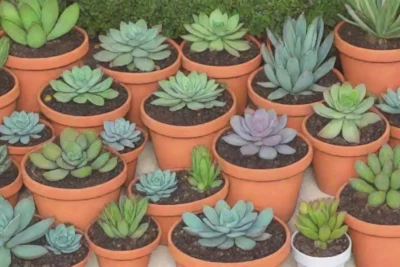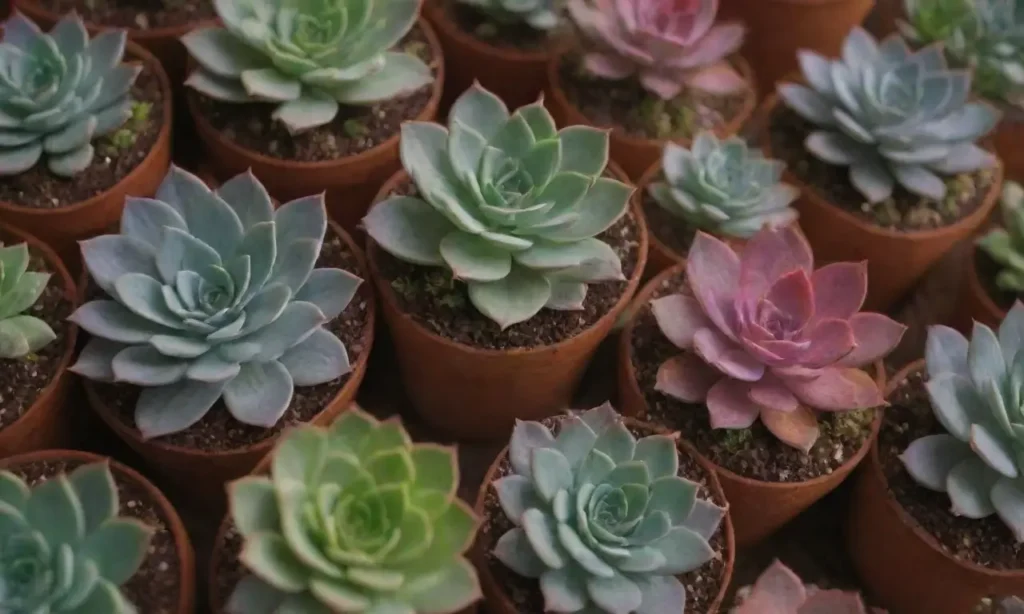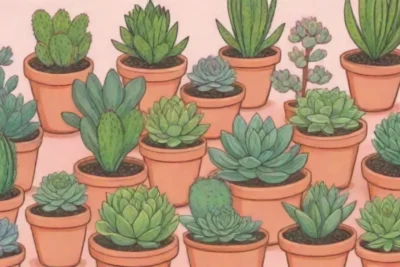
Finding Your Niche: Specialty Succulent Clubs to Consider

Introduction
The world of succulents has exploded in popularity over the past decade, captivating gardeners and casual plant lovers alike with their fascinating shapes, vibrant colors, and incredible adaptability. These enthralling plants, characterized by their thick, fleshy tissues, have carved out a substantial niche in the horticultural community. With a mix of aesthetics and ecological diversity, it’s no wonder that enthusiasts have started to form specialized clubs focused specifically on succulent cultivation and appreciation.
This article will delve into the incredibly vibrant community of specialty succulent clubs, offering insights into how they operate, the benefits they provide to members, and some popular clubs that cater to different interests. Whether you are an experienced succulent gardener or a newcomer eager to learn more, joining a succulent club can foster a sense of belonging, support, and shared passion. Let’s explore why finding your niche within this growing community can enhance your experience as a succulent enthusiast.
Understanding Succulent Clubs
Specialty clubs focused on succulents exist within a larger ecosystem of gardening organizations, often reflecting unique interests and approaches to plant care. Unlike general gardening clubs, these organizations often hone in on specific aspects of succulents, such as rare species, cultivation techniques, or even styles of presentation like terrarium design.
The Objectives of Specialty Succulent Clubs
One key objective of a succulent club is to educate members about the various aspects of succulent care. Clubs often organize regular workshops, guest speaker sessions, and interactive events focusing on skills like propagation, pest management, and creative planting designs. This educational component is valuable for both novice and seasoned members, as it allows for a constant exchange of knowledge and experiences that can lead to improved personal growth and expertise.
Another core goal of these clubs is to promote community engagement. Members share a passion for succulents, making it easy to connect with others who share similar interests. Club activities often include informal meet-ups, plant swaps, and social gatherings, which can help foster friendships among members. The sense of belonging provides emotional support, especially for individuals who may not have a social circle that shares their passion for gardening.
Membership Benefits
Joining a specialty succulent club opens up a world filled with exclusive benefits. Members typically receive access to valuable resources, such as newsletters filled with care tips, information on upcoming events, and recommendations for both local and online vendors where they can purchase unique plants. Many clubs also curate member-only online forums or social media groups, creating spaces for ongoing discussions, networking, and collaboration.
Additionally, many clubs collaborate with nurseries or plant vendors to host member-only sales that allow members to access rare or hard-to-find succulent varieties at discounted prices. These benefits not only enhance the gardening experience but also open pathways for acquiring unique specimens that can elevate any collection.
 How to Start a Succulent Club at Work or School
How to Start a Succulent Club at Work or SchoolTypes of Specialty Succulent Clubs to Consider
As the interest in succulents has grown, so too have the types of clubs available. Here are some distinct categories of specialty succulent clubs worth exploring.
Local Clubs and Societies
Local succulent clubs are typically community-oriented organizations that cater to enthusiasts within a specific geographic area. These clubs often focus on fostering relationships among members and initiating projects aimed at community beautification.
Benefits of Local Clubs
One of the primary advantages of local succulent clubs is the ability to engage in hands-on learning. Members often organize field trips to local gardens, botanical centers, and nurseries where they can learn from experienced pros. This in-person experience provides invaluable lessons that can’t be replicated through books or online resources alone.
Additionally, many local clubs host community-oriented events such as plant fairs, which can attract more individuals to the succulent-loving community. These events not only provide knowledge and resources, but also create an amazing opportunity for networking, meeting new people, and forming lasting friendships.
Online Clubs and Forums
In an era increasingly dominated by digital interactions, online succulent clubs have emerged to accommodate those who may not have local options or prefer the convenience of engaging with members from far and wide.
The Power of Digital Connection
Online clubs offer unique benefits such as global networking opportunities. Members can connect with fellow enthusiasts from different parts of the world, sharing knowledge, tips, and even trading plants. There’s something special about learning about someone’s succulent care techniques in Australia or their propagation tips in Brazil.
Another valuable aspect of online succulent clubs is the wealth of information they provide. Many of these forums feature comprehensive discussions that cover a wide range of topics, from beginner care to advanced hybridization techniques. Various platforms allow members to upload images, share their gardening experiences, and even participate in themed contests to showcase their plants.
 DIY Craft Ideas for Succulent Clubs That Promote Creativity
DIY Craft Ideas for Succulent Clubs That Promote CreativitySpecialty Clubs Focused on Rare Species
For true succulent aficionados, clubs dedicated to rare species might be the answer. These clubs focus on securing and nurturing unique plant collections that may be hard to find, promoting conservation and preservation efforts.
Why Join Rare Species Clubs?
Joining a rare species succulent club opens the door to the possibility of acquiring unique plants that are often unavailable in traditional stores. Members develop a keen interest in preservation, learning about the various breeding techniques to propagate unique varieties.
Many of these clubs emphasize the importance of ethical practices. Education on how to prevent over-harvesting of wild populations and advocating for cultivation from seed or cuttings is often emphasized, creating an environmentally conscious community committed to sustainable practices.
Tips for Getting Involved

Once you have identified the type of specialty succulent club that resonates with your interests, here are some actionable tips on how to get involved.
Start with Research
Before committing to a specific club, conduct thorough research to ensure that it aligns with your personal goals and interests. Most clubs have a dedicated online presence—whether through a website or social media pages—where you can explore their activities and community engagement. Don’t hesitate to reach out to existing members for their perspectives on the club dynamic and what you can expect as a newcomer.
Attend an Initial Meeting or Event
Most clubs will host initial meetings or events that are open to newcomers. Participating in these gatherings can give you a feel for the club dynamics, as well as provide you with opportunities to ask questions, meet fellow members, and participate in activities. This initial engagement is crucial—it allows you to gauge whether or not the club’s atmosphere aligns with your expectations.
 How to Keep Club Membership Active and Engaged
How to Keep Club Membership Active and EngagedEngage with the Community
After becoming a member, take full advantage of your club experience by actively engaging with the community. Share your knowledge, ask questions, and participate in discussions to foster connections with fellow members. The more you put yourself out there, the more rewarding your experience will be.
Conclusion
Finding your niche through specialty succulent clubs can be an enriching journey filled with community, education, and personal growth. Whether you choose a local club to engage with members in your area, an online forum for broader accessibility, or a specialized group centered on rare species, you’re sure to find individuals who share your passion for these remarkable plants.
The connections you make—both personally and professionally—within these clubs can enhance your succulent gardening experience beyond measure. By fostering knowledge sharing and engaging in unique plant care techniques, you'll not only cultivate beautiful specimens but also build lasting relationships with like-minded individuals.
In the fast-growing world of succulents, finding the right club can amplify your passion for plants, leading to a deeper understanding and appreciation of these living wonders. Remember that every succulent enthusiast's journey is unique, and finding your place within a specialty club may just be the stepping stone to discovering your gardening potential. Don’t wait—take the plunge and immerse yourself in the succulent community today!
If you want to read more articles similar to Finding Your Niche: Specialty Succulent Clubs to Consider, you can visit the Succulent Clubs category.






You Must Read